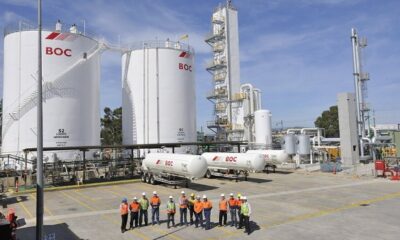In a striking indication of the challenges facing Nigeria’s manufacturing sector, tax payments from manufacturers have plummeted to their lowest level in three years.
According to the latest Company Income Tax (CIT) report by the National Bureau of Statistics (NBS), the tax revenue from both local and foreign manufacturing firms fell by a staggering 70.4 percent in the first quarter of 2024.
The revenue dropped to N43.2 billion from N145.1 billion in the same period last year, indicating the severe impact of the country’s tough operating environment on manufacturers’ financial performance.
This decline also reflects a year-on-year decrease of 31.4 percent from N62.9 billion, highlighting the ongoing difficulties manufacturers face.
The report points to increased borrowing costs, driven by rising interest rates and the devaluation of the naira, as key factors squeezing the sector.
“Manufacturers are not finding it easy with the high cost of production,” said Abiodun Kayode-Alli, a senior tax manager at PwC.
He explained that the harsh economic climate has significantly reduced the amount companies contribute to the government in taxes.
“Apart from the tough business environment, collection in Q1 is usually not much because most companies have until June 30 to complete filing and payments.”
Company Income Tax, a levy imposed on the income of corporations, varies based on company size.
Small firms with gross turnovers of N25 million or less are exempt, medium-sized firms (turnover between N25 million and N100 million) pay 20 percent, and large companies (turnover above N100 million) are taxed at 30 percent.
Despite these gradations, the manufacturing sector, which used to be a major contributor, recorded the lowest growth rate among 21 sectors.
The aggregate CIT collection fell by 12.9 percent to N984.61 billion in Q1 from N1.13 trillion in the previous quarter.
This downturn is particularly concerning given that the Federal Inland Revenue Service recently disclosed a shortfall in tax revenue, generating N3.94 trillion against a target of N4.8 trillion.
Muda Yusuf, Chief Officer of the Centre for the Promotion of Private Enterprise (CPPE), highlighted the severe losses incurred by major players due to the foreign exchange reforms.
“The economy has not been favorable to most manufacturers, who are significant contributors to tax revenue,” Yusuf said.
BusinessDay’s research reveals that seven out of 13 listed consumer goods firms reported combined losses of N388.6 billion in Q1.
These firms include industry giants like International Breweries Plc, Cadbury Nigeria Plc, Nigerian Breweries Plc, and Nestlé Nigeria Plc.
Also, companies such as BUA Cement, Lafarge Africa Plc, and Nascon Allied Industries Plc saw their earnings decline significantly.
“A lot of consumer firms had higher finance costs because of FX losses and higher interest rates,” noted Ayorinde Akinloye, a Lagos-based investor relations analyst. “Despite some having good operating performance, their profits declined, while others recorded huge losses.”
The Central Bank of Nigeria’s aggressive monetary policy, raising the rate to 26.25 percent in May to combat inflation and support the naira, has exacerbated these financial pressures.
The liberalization of the foreign exchange regime also resulted in a near 30 percent devaluation of the naira this year, further complicating the economic landscape for manufacturers.
This challenging environment has prompted several multinationals to exit the Nigerian market. In the past ten months, companies like Kimberly-Clark, Procter & Gamble, GlaxoSmithKline Consumer Nigeria, Equinor, Sanofi, and Bolt Food have ceased operations in the country.
“Many companies that seem to be alive today are sick and most are not making profits. Many will still shut down because they cannot plan. About 10 million businesses have closed shop,” said Femi Egbesola, national president of the Association of Small Business Owners of Nigeria.
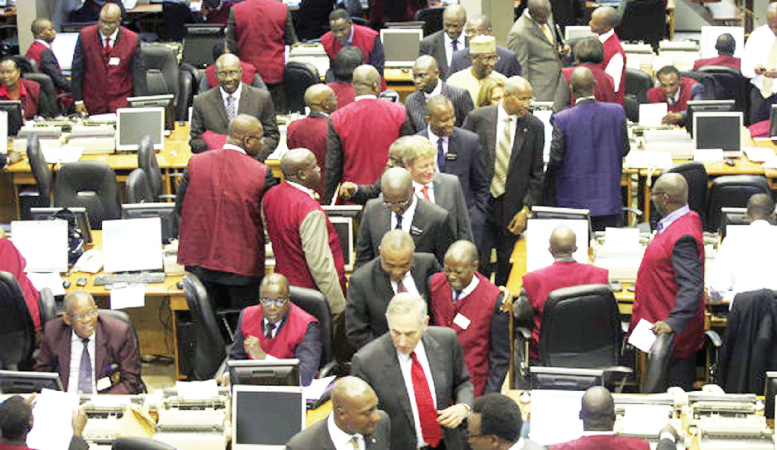

 Naira2 weeks ago
Naira2 weeks ago
 Naira3 weeks ago
Naira3 weeks ago


 Naira2 weeks ago
Naira2 weeks ago




 Naira4 weeks ago
Naira4 weeks ago
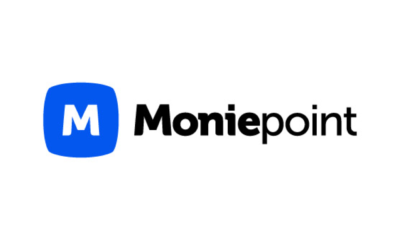

 Fintech4 weeks ago
Fintech4 weeks ago
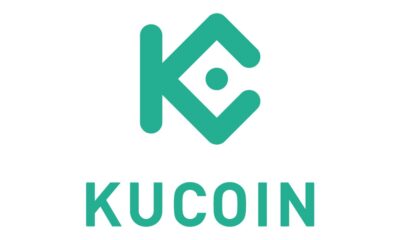

 Cryptocurrency4 weeks ago
Cryptocurrency4 weeks ago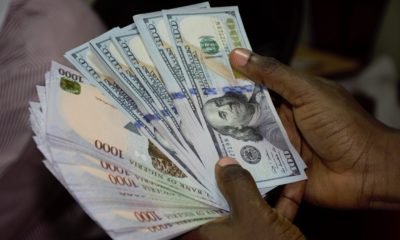
 Naira4 weeks ago
Naira4 weeks ago
 Naira3 weeks ago
Naira3 weeks ago

